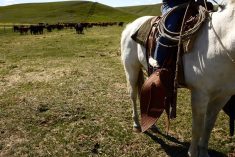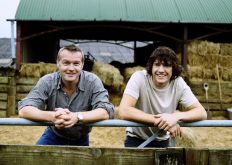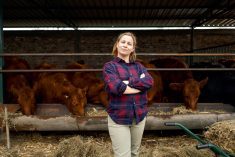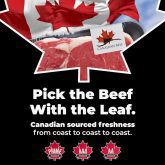A North American view of the meat industry. Steve Kay is publisher and editor of
Cattle Buyers Weekly
The saddest part of this sorry tale is that Australia has inflicted more wounds on its own beef industry than anyone else’s
The Australian government’s backtracking on an agreement to import beef from countries with BSE cases is another slap in the face for Canada. It’s not that Canada had expected to sell thousands of tons of beef Down Under. It had hoped though to gain re-entry to the South Korean market. But what has occurred in Australia could make that day further away.
Read Also

A strategic approach to risk on the ranch
Given the increase in the value of livestock and the market volatility, we need to cover our risks. First,…
Here’s how the saga unfolded. Australia last November agreed to start accepting beef again from BSE countries, including Canada, the U. S., Japan and the UK. It presumably felt comfortable doing this because of numerous safeguards in place in these countries to keep BSE out of the beef supply. These measures range from a mandatory feed ban to rigourous removal of specified risk materials (any animal parts that might possibly harbour BSE). Australia was also guided, I imagine, by recommendations by the World Organization for Animal Health (commonly known as the OIE). It would have noted OIE’s BSE “minimum risk” status conferred on some of the countries, including Canada and the U. S.
All this seemed straightforward and sensible. Australia was reopening its market based on sound science. But its politicians and beef industry didn’t reckon on a veritable lynch mob forming in early February. Its leader was a renegade band of producers called the Australian Beef Association (ABA). Those of you who have followed R-CALF’s antics in recent years in trying to keep Canadian cattle and beef out of the U. S. will know how ABA operates. Like R-CALF, it spews out half-truths and outright lies and plays on the fears and emotions of disaffected producers, and garners support from maverick politicians.
ABA jumped all over the import decision like flies on a cow patty. It and several politicians whipped the issue to a frenzy, claiming the government’s decision would endanger the squeaky-clean image of Australian beef. ABA seemed to focus its absurd claims exclusively on U. S. beef and declared the U. S. was poised to export 50,000 metric tons of beef to Australia annually. Apart from the number being a fabrication, it flies in the face of the fact that the U. S. in the years before its 2003 BSE case had never sent more than 40 MT a year and usually much less. ABA and others also ignored the fact that Australia and New Zealand share a common food standards body. Yet New Zealand, which is just as protective of its BSE-free status as Australia, has allowed U. S. beef to enter New Zealand for at least the past three years.
The Australian government, however, caved in to the rabble and announced it would order that an import risk analysis (IRA) be conducted on all fresh beef imports from countries other than New Zealand. Early suggestions are that such IRAs could take up to two years to complete. Such action flies in the face of international agreements about meat inspection and phytosanitary standards. It also reverses earlier protocols that merely included a questionnaire for completion by prospective export nations.
The saddest part of this sorry tale is that Australia has inflicted more wounds on its own beef industry than anyone else’s. It might have damaged its domestic beef consumption and hurt its exports. It has certainly undermined its credibility to make trade decisions based on sound science by allowing public pressure to prevail. Its backtracking might also set a dangerous precedent for other countries, such as South Korea, to follow. Public protests forced Korea to backtrack over its decision to allow bone-in U. S. beef into the country. What happened in Australia might well delay even longer the prospect of Canadian beef entering Korea again.
Cattle Buyers Weekly covers the North American meat and livestock industry. For subscription information, contact Steve Kay at P. O. Box 2533, Petaluma, CA 94953, or at 707-765-1725, or go to www.cattlebuyersweekly.com.















